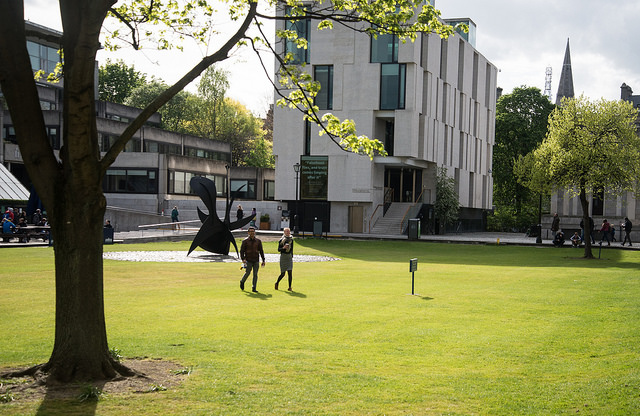Trinity will only use real-time online exams only where they’re “academically indispensable” this summer, with Turnitin software to be used in these cases to prevent cheating.
An email sent to students today, signed by Senior Lecturer Kevin Mitchell and Vice-Provost Jurgen Barkhoff, said College hopes that moving to mostly offline exams will “reduce the stress associated with real-time exams”.
And a confidential memorandum, presented to Trinity’s University Council this morning and seen by The University Times, said that real-time online exams “should only be used where take-home exams or assignments are not feasible”.
The document, approved by Council, added that Turnitin software will be used in these cases “to control for plagiarism and collusion”.
In the email, Mitchell and Barkhff wrote that Council had “approved comprehensive changes to the assessments used for all our modules in response to the COVID-19 situation. Final examinations have been mostly converted to an assignment or a take-home exam that can be completed offline”.
“This has been done to enable proper assessment under the current circumstances and to reduce the stress associated with real-time exams”, they added. “Only in a limited number of cases and where this was academically indispensable have we opted for assessment with a real-time online exam. These changes are aimed at allowing all students to complete their assessments under these extraordinary circumstances.”
This morning, The University Times revealed that Trinity would reject a no-detriment policy called for by thousands of students, and put in place a raft of alternative measures for students whose exam performance is compromised by the coronavirus pandemic.
Documents obtained by this newspaper showed Council was to be presented with a proposal that will allow students to resit modules even if they’ve passed them, or to retrospectively defer assessments if they feel their performance has been affected.
Trinity will also allow students to pass the year, no matter how many modules they fail, as long as their overall mark is over 40 per cent.
Mitchell and Barkhoff said: “We recognise that many students will be able to pass but may feel unable to achieve the kind of results they would have hoped for under normal conditions.”
“This will be especially important for grades achieved in years that contribute to the degree award, which can, of course, have an important impact on students’ admission to programmes of further study or other career opportunities”, they concluded.







